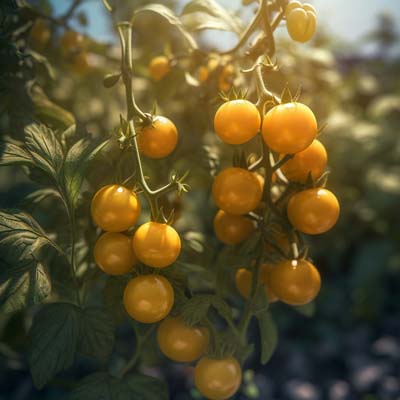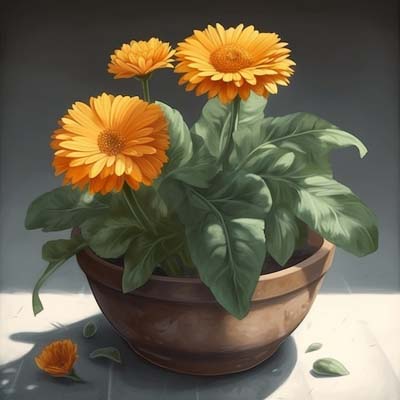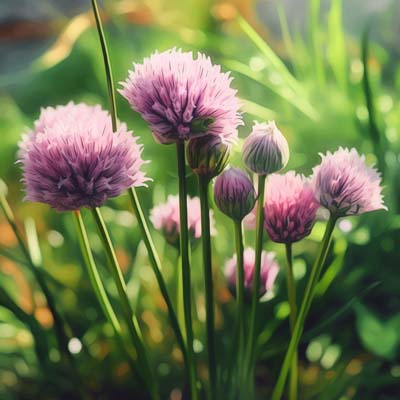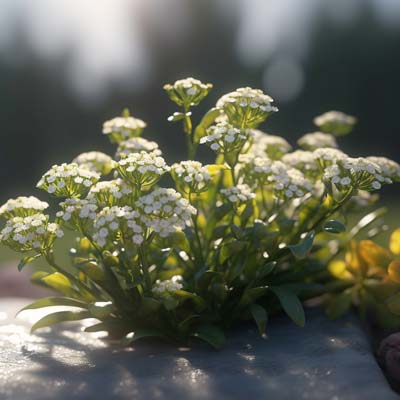Growing Green Thumbs: 20 Best Plants for First-Time Child Gardeners
Introducing children to gardening is a wonderful way to foster their love for nature, teach them responsibility, and provide a hands-on learning experience. To help you get started, I've compiled a list of 20 plants that are ideal for first-time child gardeners. Each plant description includes whether it's best to grow from seed or plant. Let's dive in!
20 Best Plants for Gardening with Children:
 Sunflower (Helianthus annuus) - Seed: Sunflowers are easy to grow from seed and can reach impressive heights, delighting children with their bright, large blooms.
Sunflower (Helianthus annuus) - Seed: Sunflowers are easy to grow from seed and can reach impressive heights, delighting children with their bright, large blooms. Marigold (Tagetes) - Seed: Marigolds are vibrant annual flowers that are perfect for young gardeners. They germinate quickly and provide beautiful pops of color.
Marigold (Tagetes) - Seed: Marigolds are vibrant annual flowers that are perfect for young gardeners. They germinate quickly and provide beautiful pops of color. Nasturtium (Tropaeolum majus) - Seed: Nasturtiums are fast-growing and have vibrant, edible flowers. Kids will love watching them climb and exploring the peppery flavor.
Nasturtium (Tropaeolum majus) - Seed: Nasturtiums are fast-growing and have vibrant, edible flowers. Kids will love watching them climb and exploring the peppery flavor. Radish (Raphanus sativus) - Seed: Radishes are one of the fastest-growing vegetables. Children can sow the seeds directly in the soil and harvest them in as little as 3-4 weeks.
Radish (Raphanus sativus) - Seed: Radishes are one of the fastest-growing vegetables. Children can sow the seeds directly in the soil and harvest them in as little as 3-4 weeks. Lettuce (Lactuca sativa) - Seed: Lettuce is a cool-season crop that grows well from seed. Kids can grow different varieties and enjoy fresh salads straight from their garden.
Lettuce (Lactuca sativa) - Seed: Lettuce is a cool-season crop that grows well from seed. Kids can grow different varieties and enjoy fresh salads straight from their garden. Cherry Tomato (Solanum lycopersicum var. cerasiforme) - Plant: Cherry tomatoes are a great choice for child gardeners. They can be grown from small plants and produce an abundance of sweet fruits.
Cherry Tomato (Solanum lycopersicum var. cerasiforme) - Plant: Cherry tomatoes are a great choice for child gardeners. They can be grown from small plants and produce an abundance of sweet fruits. Strawberries (Fragaria spp.) - Plant: Strawberries are a fun fruit for kids to grow. You can start with young plants or runners, and children will be thrilled to harvest and eat their own strawberries.
Strawberries (Fragaria spp.) - Plant: Strawberries are a fun fruit for kids to grow. You can start with young plants or runners, and children will be thrilled to harvest and eat their own strawberries. Pea (Pisum sativum) - Seed: Peas are cool-season vegetables that kids can sow directly in the ground. They'll enjoy watching the vines climb and the satisfaction of shelling fresh peas.
Pea (Pisum sativum) - Seed: Peas are cool-season vegetables that kids can sow directly in the ground. They'll enjoy watching the vines climb and the satisfaction of shelling fresh peas. Beans (Phaseolus vulgaris) - Seed: Beans are easy to grow from seed and come in various types, such as green beans, snap beans, and colorful varieties. Children can observe the climbing nature of bean plants.
Beans (Phaseolus vulgaris) - Seed: Beans are easy to grow from seed and come in various types, such as green beans, snap beans, and colorful varieties. Children can observe the climbing nature of bean plants. Carrot (Daucus carota) - Seed: Carrots can be grown from seed and are a favorite among children. They'll be excited to pull up their first orange, crunchy harvest.
Carrot (Daucus carota) - Seed: Carrots can be grown from seed and are a favorite among children. They'll be excited to pull up their first orange, crunchy harvest. Zinnia (Zinnia elegans) - Seed: Zinnias are colorful flowers that are easy to grow from seed. Children can select different varieties and enjoy vibrant blooms in their garden.
Zinnia (Zinnia elegans) - Seed: Zinnias are colorful flowers that are easy to grow from seed. Children can select different varieties and enjoy vibrant blooms in their garden. Basil (Ocimum basilicum) - Plant: Basil is an aromatic herb that can be grown from small plants. Kids will love the fragrance and can use the leaves for cooking or making homemade pesto.
Basil (Ocimum basilicum) - Plant: Basil is an aromatic herb that can be grown from small plants. Kids will love the fragrance and can use the leaves for cooking or making homemade pesto. Cucumber (Cucumis sativus) - Plant: Cucumbers can be grown from small plants and are perfect for child gardeners. Kids can watch them trail and enjoy fresh cucumbers in salads or snacks.
Cucumber (Cucumis sativus) - Plant: Cucumbers can be grown from small plants and are perfect for child gardeners. Kids can watch them trail and enjoy fresh cucumbers in salads or snacks. Sun Sugar Tomato (Solanum lycopersicum) - Plant: Sun Sugar tomatoes are a favorite for children due to their sweet flavor. Start with small plants, and kids will love picking these golden cherry tomatoes.
Sun Sugar Tomato (Solanum lycopersicum) - Plant: Sun Sugar tomatoes are a favorite for children due to their sweet flavor. Start with small plants, and kids will love picking these golden cherry tomatoes. Calendula (Calendula officinalis) - Seed: Calendula, also known as pot marigold, is an easy-to-grow flower from seed. Its bright, edible petals can be used to decorate dishes or make herbal remedies.
Calendula (Calendula officinalis) - Seed: Calendula, also known as pot marigold, is an easy-to-grow flower from seed. Its bright, edible petals can be used to decorate dishes or make herbal remedies. Dill (Anethum graveolens) - Seed: Dill is an aromatic herb that kids can grow from seed. They'll enjoy the feathery foliage and can use it to flavor their dishes or make pickles.
Dill (Anethum graveolens) - Seed: Dill is an aromatic herb that kids can grow from seed. They'll enjoy the feathery foliage and can use it to flavor their dishes or make pickles. Snapdragons (Antirrhinum majus) - Seed: Snapdragons are delightful flowers with unique snap-like blooms. They're easy to grow from seed and come in various colors, making them a favorite among children.
Snapdragons (Antirrhinum majus) - Seed: Snapdragons are delightful flowers with unique snap-like blooms. They're easy to grow from seed and come in various colors, making them a favorite among children. Chives (Allium schoenoprasum) - Plant: Chives are perennial herbs that can be grown from small plants. Kids will enjoy their mild onion flavor and can use the leaves to add a touch of freshness to their meals.
Chives (Allium schoenoprasum) - Plant: Chives are perennial herbs that can be grown from small plants. Kids will enjoy their mild onion flavor and can use the leaves to add a touch of freshness to their meals. Sweet Alyssum (Lobularia maritima) - Seed: Sweet Alyssum is a low-growing flower that produces clusters of small, fragrant blooms. Kids can sow the seeds directly in the ground, and the plants will attract pollinators to their garden.
Sweet Alyssum (Lobularia maritima) - Seed: Sweet Alyssum is a low-growing flower that produces clusters of small, fragrant blooms. Kids can sow the seeds directly in the ground, and the plants will attract pollinators to their garden. Mint (Mentha) - Plant: Mint is a hardy herb that can be grown from small plants. Children will love the refreshing scent and can use the leaves to make teas or flavor their drinks and desserts.
Mint (Mentha) - Plant: Mint is a hardy herb that can be grown from small plants. Children will love the refreshing scent and can use the leaves to make teas or flavor their drinks and desserts.
These 20 plants provide a diverse range of colors, textures, and flavors for children to explore in their garden. Whether growing from seed or planting small plants, kids will have the opportunity to witness the magic of nature as their plants grow and thrive. Gardening can be a rewarding and educational experience for children, teaching them valuable skills and instilling a lifelong appreciation for the natural world.
Container Gardening
All of the plants listed, with the possible exception of the largest of sunflowers, grow great in pots! Creating a pot garden can be a bit more manageable for some people, depending on the space they have available.
When choosing pots for container gardening, make sure they have drainage holes at the bottom to prevent waterlogging. Use a good-quality potting mix that is lightweight and provides adequate drainage.
Consider the size of the mature plant when selecting the pot size. Some plants like tomatoes, cucumbers, and beans may require larger pots or even trellises or stakes for support.
Regular watering and proper sunlight exposure are essential for potted plants. Place the pots in a sunny spot that receives at least 6-8 hours of sunlight per day. Water the plants when the top inch of soil feels dry, but avoid overwatering.
Container gardening allows children to have a mini-garden even in small spaces, such as balconies or patios. It also gives them the opportunity to take care of plants and witness the entire growth process up close.
Remember to involve children in the potting process, from selecting the plants and pots to planting and caring for them. This hands-on experience will provide valuable lessons in responsibility and nurture their connection with nature.
back to KidZone Science